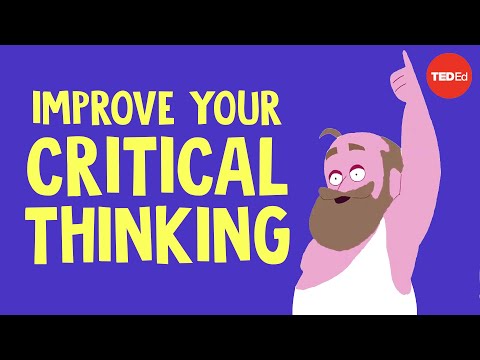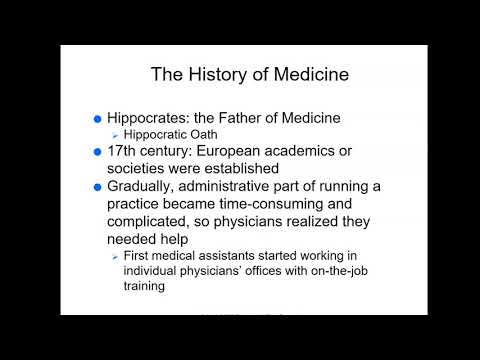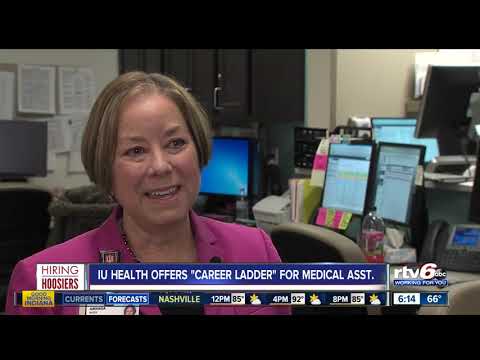How to Develop Critical Thinking Skills as a Medical Assistant
Contents [show]
As a medical assistant you will be required to think critically on a daily basis in order to provide the best possible care for your patients. This blog post will provide you with some tips on how to develop your critical thinking skills.
Checkout this video:
What is critical thinking?
Critical thinking is the ability to think clearly and rationally, understanding the logical connection between ideas. It involves the ability to engage in reflective and independent thinking. In other words, critical thinking is a way of thinking that questions assumptions and looks at evidence in order to form judgments.
Medical assistants must be able to think critically in order to provide quality patient care. They must be able to analyze information and make sound decisions. Critical thinking skills are important for Medical assistants because they often have to make decisions quickly and without complete information.
There are several ways you can develop your critical thinking skills as a medical assistant One way is to practice “reflective thinking.” This means taking the time to stop and think about your own thought process, question your assumptions, and look at evidence objectively. Another way is to seek out different points of view and gather as much information as possible before making a decision. You can also try “thinking outside the box” by looking for creative solutions to problems. And finally, you can develop your critical thinking skills by taking courses or attending workshops that focus on this topic.
Why is critical thinking important for medical assistants?
Critical thinkers in the medical field are able to make better decisions, solve problems more effectively, and provide quality patient care. As a medical assistant you will be responsible for a variety of tasks that require critical thinking skills.
Some of the most important critical thinking skills for Medical Assistants include:
-The ability to analyze information and identify key points
-The ability to make decisions based on sound reasoning
-The ability to solve problems effectively
-The ability to apply knowledge in new and different situations
-The ability to think creatively
-The ability to communicate clearly and effectively
How can medical assistants develop critical thinking skills?
Many experts agree that critical thinking skills are important not only for those in the medical field, but for success in any career. As a medical assistant you will be called upon to make decisions on a daily basis, sometimes with life-or-death consequences. It is essential that you develop strong critical thinking skills in order to be successful in your career.
There are a few ways that you can develop critical thinking skills as a medical assistant. First, it is important to be well-informed about the different aspects of healthcare. You should read up on medical news and trends, so that you are aware of the latest developments in the field. This will help you to better understand the issues that your patients are facing, and to make more informed decisions about their care.
In addition, it is important to get as much experience as possible in the healthcare setting. The more experience you have working with patients and making decisions about their care, the better equipped you will be to handle critical situations. If possible, try to get a job in a hospital or other healthcare facility so that you can gain first-hand experience dealing with critical problems.
Finally, it is also helpful to take courses in critical thinking or logic. These courses will help you to learn how to identify valid arguments and how to apply reasoning skills to solve problems. By taking courses like these, you can develop strong critical thinking skills that will serve you well in your career as a medical assistant.
What are some critical thinking skills that medical assistants need?
Medical assistants need to be able to think critically in order to effectively carry out their duties. Some of the critical thinking skills that medical assistants need include:
-The ability to analyze and solve problems
-The ability to make decisions
-The ability to pay attention to detail
-The ability to communicate effectively
-The ability to understand and follow instructions
-The ability to handle multiple tasks simultaneously
What are some obstacles that prevent medical assistants from thinking critically?
There are many obstacles that prevent medical assistants from thinking critically. One of the biggest obstacles is the lack of time. Medical assistants are often rushed and do not have time to stop and think about a problem. They may also be afraid to ask questions or challenge authority figures. Another obstacle is the lack of experience. Medical assistants may not have enough experience to know how to approach a problem or how to evaluate information.
How can medical assistants overcome these obstacles?
Though some of the duties of a medical assistant are routine, the job as a whole is anything but. Medical assistants are constantly faced with new challenges, whether it’s keeping up with the latest medical advances or dealing with difficult patients. To be successful in this field, you need to have strong critical thinking skills.
Critical thinking is the ability to analyze a situation and make a judgement based on logical reasoning. As a medical assistant, you will use critical thinking skills on a daily basis, from making decisions about patient care to solving problems in the office.
Unfortunately, critical thinking doesn’t come naturally to everyone. If you’re not used to using your logic and reasoning skills, it can be difficult to know how to get started. However, there are several things you can do to develop your critical thinking skills as a medical assistant.
Here are four tips for how medical assistants can overcome obstacles and develop strong critical thinking skills:
1. Be patient with yourself
If you’re not used to using your critical thinking skills, it will take some time to develop them. Be patient with yourself and don’t expect to be an expert overnight. Allow yourself time to make mistakes and learn from them.
2. Practice “thinking out loud”
One way to become more comfortable with using your critical thinking skills is to practice “thinking out loud.” This means vocalizing your thought process as you work through a problem or decision. For example, if you’re trying to decide whether or not to refer a patient to a specialist, you might say out loud, “I need to consider the severity of the patient’s symptoms and whether or not they would benefit from seeing a specialist.” Thinking out loud will help you get in the habit of using your logic and reasoning skills when making decisions.
3. Take advantage of training opportunities
Most employers offer some type of training on critical thinking skills for their employees. If your employer offers this type of training, be sure to take advantage of it! This is an excellent way to learn new techniques and hone your existing skills.
4. Seek out challenging situations
In order to really test yourcritical thinking skills, seek out challenging situations at work. For example, if you’re confronted with a difficult patient issue that you’ve never dealt with before, take some time to sit down and think through the problem before taking any action. The more challenging the situation, the better opportunity you have for testing and strengthening your critical thinking abilities
What resources are available to help medical assistants develop critical thinking skills?
As a medical assistant, you will be required to think critically on a daily basis in order to provide the best possible care for your patients. But what resources are available to help you develop this essential skill?
One great way to develop your critical thinking skills is to take advantage of online resources. The internet is full of articles and blog posts that can help you learn how to think more critically. You can also find several critical thinking games and puzzles online that can help you sharpen your skills.
Another excellent way to improve your critical thinking skills is to read extensively. When you read, you are exposed to new ideas and perspectives that can help you learn how to think more critically about the world around you. A variety of books can be helpful in this regard, but some specific titles that have been known to improve critical thinking skills include “Thinking, Fast and Slow” by Daniel Kahneman and “The Art of Thinking Clearly” by Rolf Dobelli.
In addition to reading and using online resources, another great way to develop your critical thinking skills is to take courses or attend workshops that focus on this topic. There are many different organizations that offer such courses, so doing some research online or through your local library should help you find something in your area. If there are no courses or workshops available near you, another option is to find a mentor who can help guide you in developing your critical thinking skills.
How can medical assistants use critical thinking skills in their work?
As a medical assistant, you will be called upon to use your critical thinking skills on a daily basis. You will need to be able to quickly and accurately assess patients, identify symptoms, and make recommendations for treatment. In this article, we will discuss some of the key ways that you can develop your critical thinking skills.
1. Pay attention to detail. When you are assessing a patient, it is important to pay attention to all of the details. This means looking beyond the obvious symptoms and trying to identify any underlying causes. For example, if a patient comes in with a rash, you should not just treat the rash. You should also try to identify any potential allergens or other irritants that may be causing the rash.
2. Ask questions. When you are unsure about something, it is always best to ask questions. This will help you to get more information about a situation and make better decisions. For example, if you are not sure how to treat a particular condition, you may want to ask a more experienced medical assistant or doctor for their opinion.
3
What are some benefits of being a critical thinker as a medical assistant?
There are many benefits of being a critical thinker as a medical assistant. One benefit is that it allows you to be more thoughtful and analytical in your work. For example, when reviewing a patient’s medical chart, you may notice something that doesn’t seem quite right. By thinking critically, you can raise questions and investigate the issue further to determine if there is a problem that needs to be addressed.
Another benefit of critical thinking is that it can help you make better decisions. Medical assistants are often called upon to make decisions that could have serious consequences. For example, you may need to decide whether to give a patient medication that has potential side effects. By thinking critically about the situation, you can consider all of the possible risks and benefits before making a decision.
Finally, critical thinking can help you communicate more effectively with other members of the healthcare team. When you are able to think critically about a situation, you can explain your thoughts and reasoning clearly and concisely. This can help team members understand your point of view and make better decisions about patient care.
What challenges does critical thinking present for medical assistants?
Critical thinking is a vital skill for medical assistants, who must be able to make sound decisions in a fast-paced, ever-changing healthcare environment. However, critical thinking can present some challenges, such as:
– identifying and analyzing problems
– understanding and interpreting data
– formulating hypotheses
– developing and testing solutions
– making sound decisions
With so many factors to consider, it is easy to see how critical thinking can be challenging for medical assistants. However, by taking the time to develop and hone their critical thinking skills, medical assistants can overcome these challenges and become more efficient and effective members of the healthcare team.







